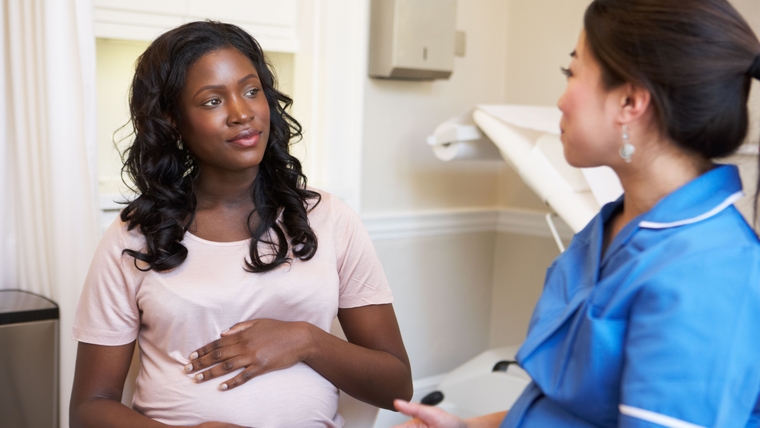Posted By: Amy Tubb
6th March 2023
3 minute read

Today, the iHV and the MMHA are proud to share ‘Supporting High-Quality Perinatal Mental Health Care’, a new resource to enable and inform high-quality, compassionate care for families impacted by PMH problems. This collaboration began from a shared desire to encourage and embed good PMH practices within services supporting women and birthing people, babies, and their families.
There is recognition of the fact that for some communities, accessing and getting quality care can be especially difficult, and that additional barriers exist for families facing multiple disadvantages and systemic inequality. Through this resource, the iHV and the MMHA sought to emphasise some of the fantastic work happening in all four nations of the UK and encourage wider shifts within policy and practice towards understanding and meeting individual needs.
Download the resourceThe starting point and basis for this work was an evidence review, conducted by iHV, which brings together key publications, policy guidance, toolkits, research and lived experience accounts into one place.
The goal for compiling and categorising the breadth of literature about PMH care is to make information easier to access, aid local discussions and support the development of quality improvement plans.
Download the evidence review“We know that the cumulative effects of the pandemic, global instability and national socio-economic factors mean a rise in need for family mental health support, alongside deepening workforce challenges. The changing landscape of how care is accessed and delivered offers an opportunity for systems to come together to support inclusive high-quality family mental health care.
“The iHV has worked alongside the MMHA for many years and we have seen the power of collective effort and the positive differences this has made over the last decade. This latest project brought us together to think about how we can support developing PMH systems across all four nations. It has led to a very comprehensive evidence review, which in itself, we feel will be incredibly useful for families, practitioners and services. The accompanying resource drawn from the evidence review provides a template that we envisage will enable individuals to come together and plan “what good looks like” for them, as individuals, practitioners, services, professions, organisations, pathways, networks, and systems. We very much hope that these resources will enable high-quality perinatal mental health care irrespective of where a family may live in the UK.”
“The iHV’s literature review has been incredibly helpful to understand the wealth of information out there on maternal mental health and what action is still needed to ensure high-quality care is available to all who need it. During the review, several recurring themes quickly emerged as well as clear opportunities for learning across the system, as highlighted in the final resource.
“In recent years, there has been a welcome increase in the understanding of the impact of maternal mental health problems. However, many still face huge barriers to accessing essential care. I hope this work will encourage local systems to have collaborative conversations and help them continue to develop services that provide high-quality maternal mental health support for women and birthing people, babies, and families across the UK.”